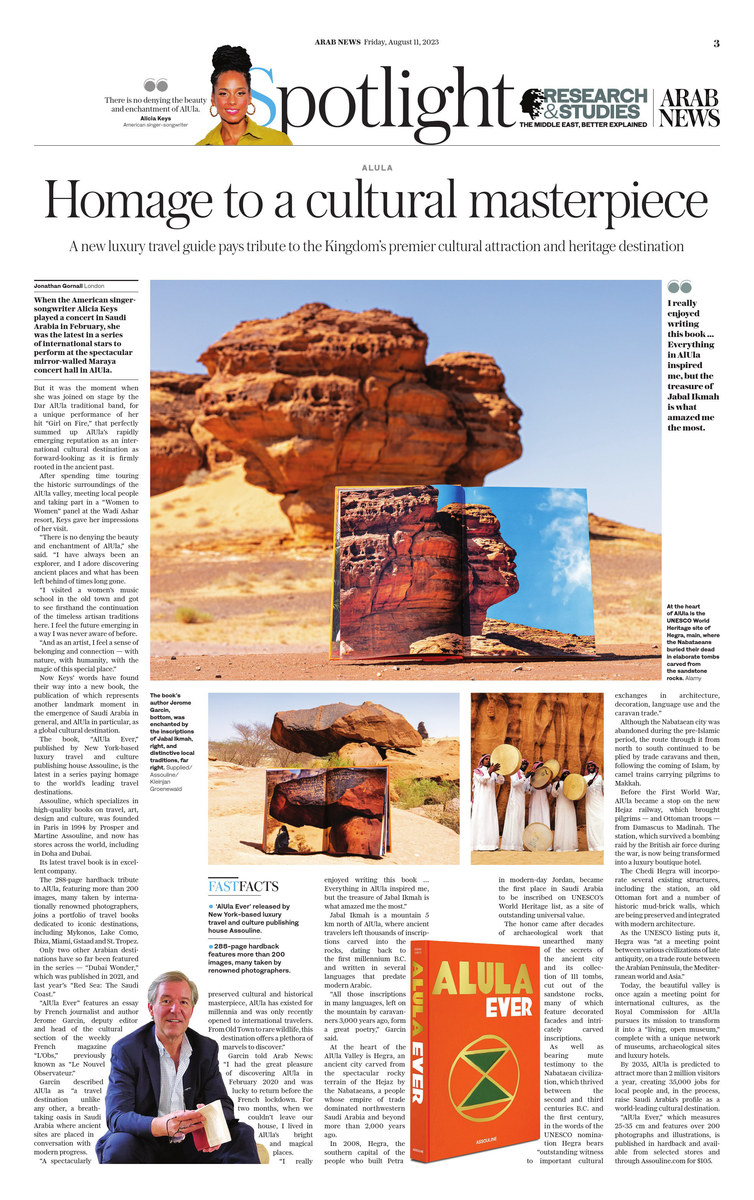LONDON: When the American singer-songwriter Alicia Keys played a concert in Saudi Arabia in February, she was the latest in a series of international stars to perform at the spectacular mirror-walled Maraya concert hall in AlUla.
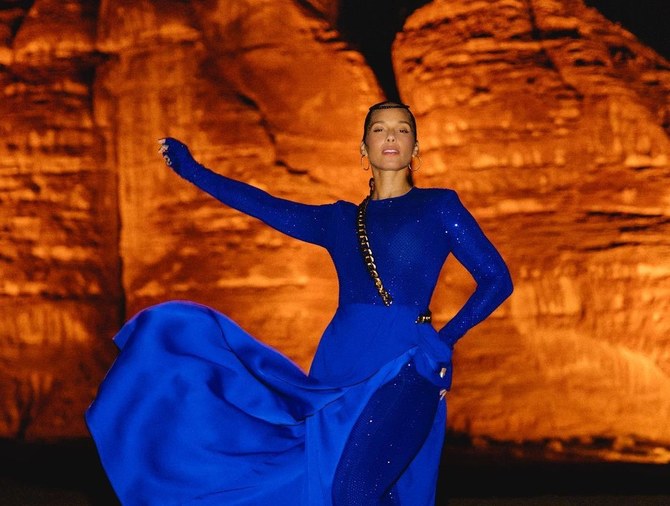
Alicia Keys performing in AlUla in February 2023. (Instagram)
But it was the moment when she was joined on stage by the Dar AlUla traditional band, for a unique performance of her hit “Girl on Fire,” that perfectly summed up AlUla’s rapidly emerging reputation as an international cultural destination as forward-looking as it is firmly rooted in the ancient past.
After spending time touring the historic surroundings of the AlUla valley, meeting local people and taking part in a “Women to Women” panel at the Wadi Ashar resort, Keys gave her impressions of her visit.
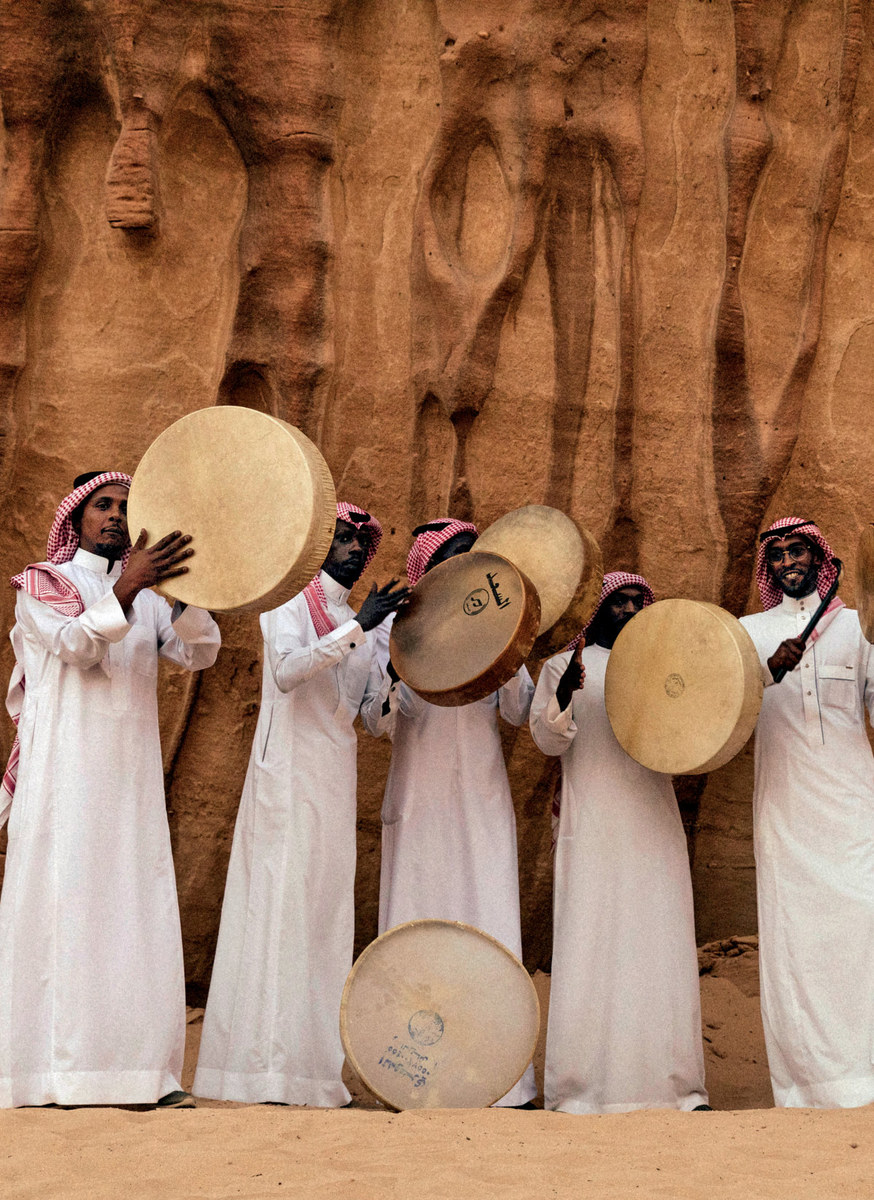
A traditional band performs in AlUla. (Kleinjan Groenewald)
“There is no denying the beauty and enchantment of AlUla,” she said. “I have always been an explorer, and I adore discovering ancient places and what has been left behind of times long gone.
“I visited a women’s music school in the old town and got to see first hand the continuation of the timeless artisan traditions here. I feel the future emerging in a way I was never aware of before.
“And as an artist, I feel a sense of belonging and connection — with nature, with humanity, with the magic of this special place.”
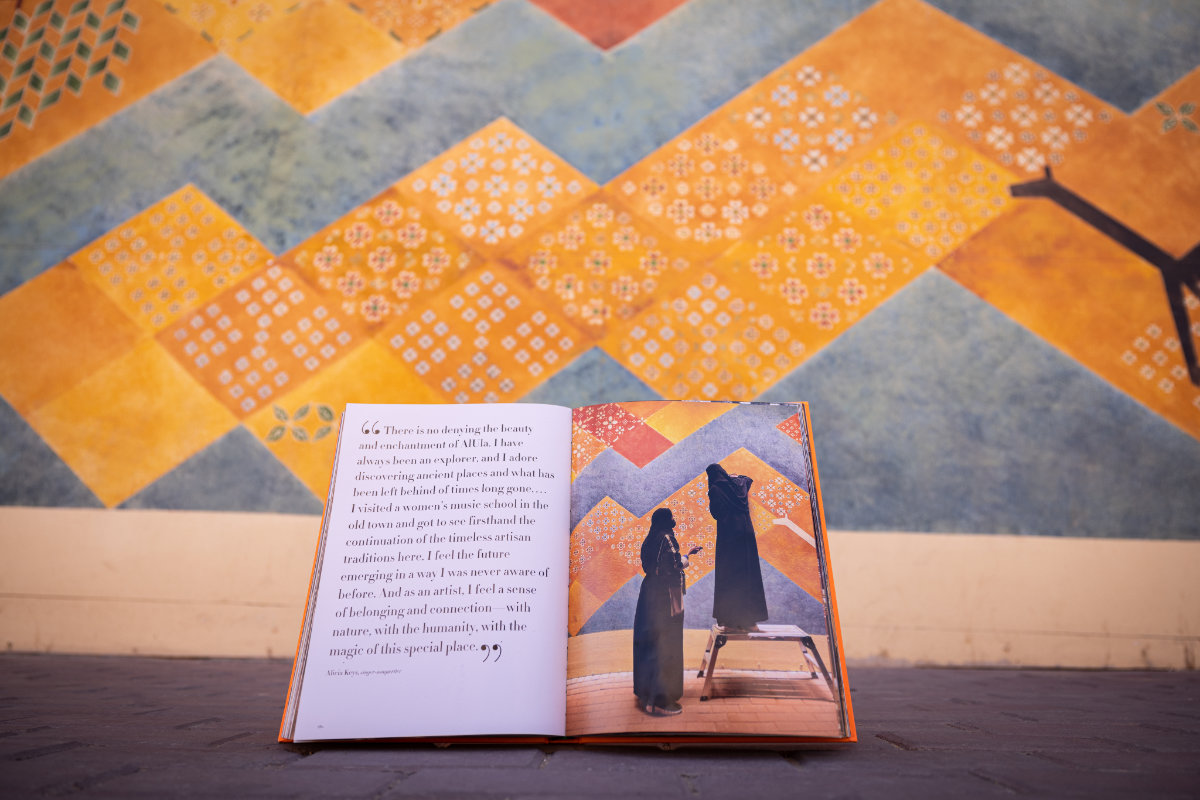
A page of the book, "AlUla Ever", containing the impressions made by American singer-songwriter Alicia Keys during her visit to AlUla. (Supplied)
Now Keys’ words have found their way into a new book, the publication of which represents another landmark moment in the emergence of Saudi Arabia in general, and AlUla in particular, as a global cultural destination.
The book, “AlUla Ever,” published by New York-based luxury travel and culture publishing house Assouline, is the latest in a series paying homage to the world’s leading travel destinations.
Assouline, which specializes in high-quality books on travel, art, design and culture, was founded in Paris in 1994 by Prosper and Martine Assouline, and now has stores across the world, including in Doha and Dubai.
Its latest travel book is in excellent company.
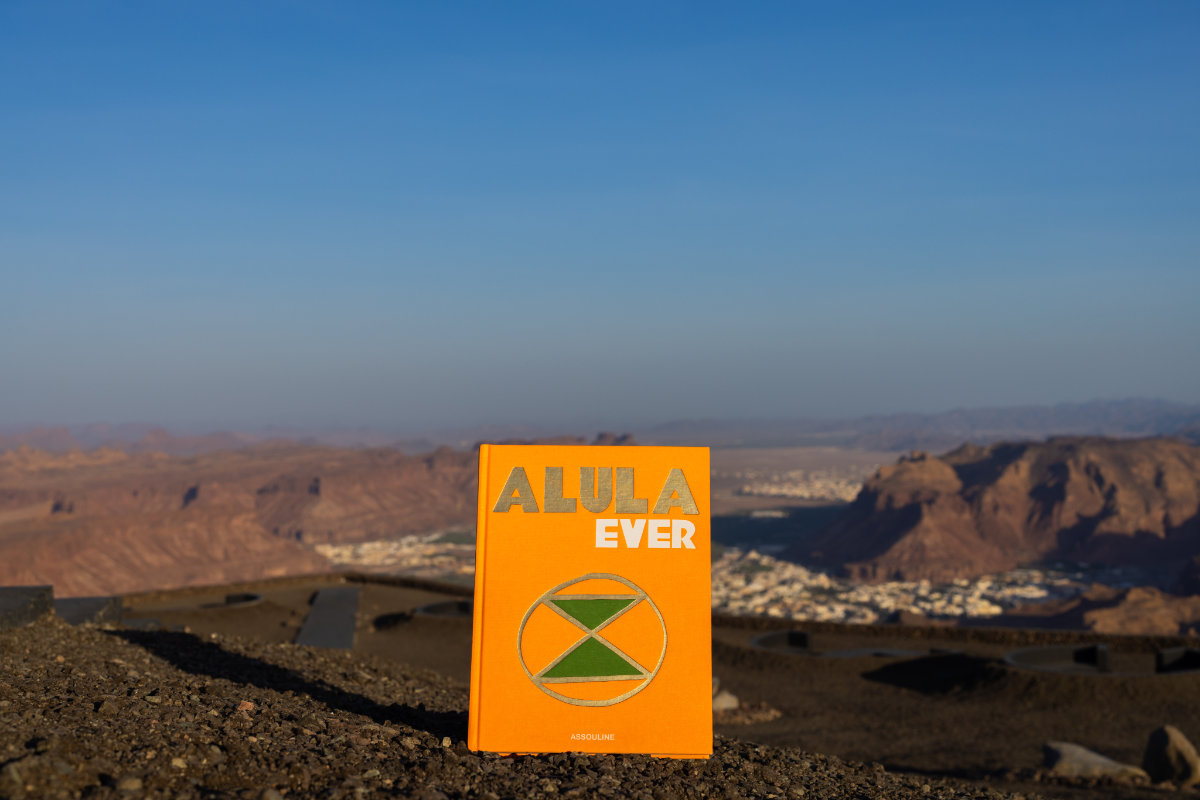
The book is pictured at AlUla's Harrat viewpoint. (Supplied)
The 288-page hardback tribute to AlUla, featuring more than 200 images, many taken by internationally renowned photographers, joins a portfolio of travel books dedicated to iconic destinations, including Mykonos, Lake Como, Ibiza, Miami, Gstaad and St Tropez.
Only two other Arabian destinations have so far been featured in the series — “Dubai Wonder,” which was published in 2021, and last year’s “Red Sea: The Saudi Coast.”
“AlUla Ever” features an essay by French journalist and author Jerome Garcin, deputy editor and head of the cultural section of the weekly French magazine “L’Obs,” previously known as “Le Nouvel Observateur.”
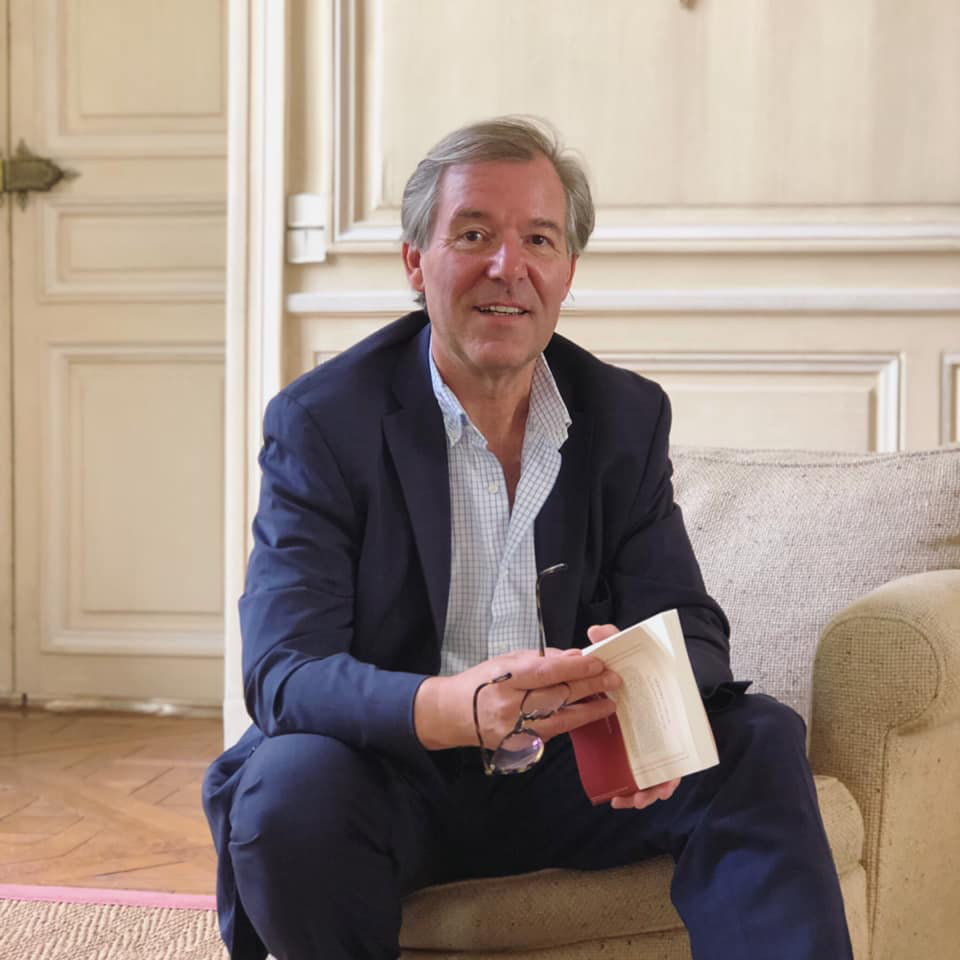
Jerome Garcin. (Supplied)
Garcin described AlUla as “a travel destination unlike any other, a breathtaking oasis in Saudi Arabia where ancient sites are placed in conversation with modern progress.
“A spectacularly preserved cultural and historical masterpiece, AlUla has existed for millennia and was only recently opened to international travelers. From Old Town to rare wildlife, this destination offers a plethora of marvels to discover.”
Garcin told Arab News: “I had the great pleasure of discovering AlUla in February 2020 and was lucky to return before the French lockdown. For two months, when we couldn’t leave our house, I lived in AlUla’s bright and magical places.
“I really enjoyed writing this book … Everything in AlUla inspired me, but the treasure of Jabal Ikmah is what amazed me the most.”
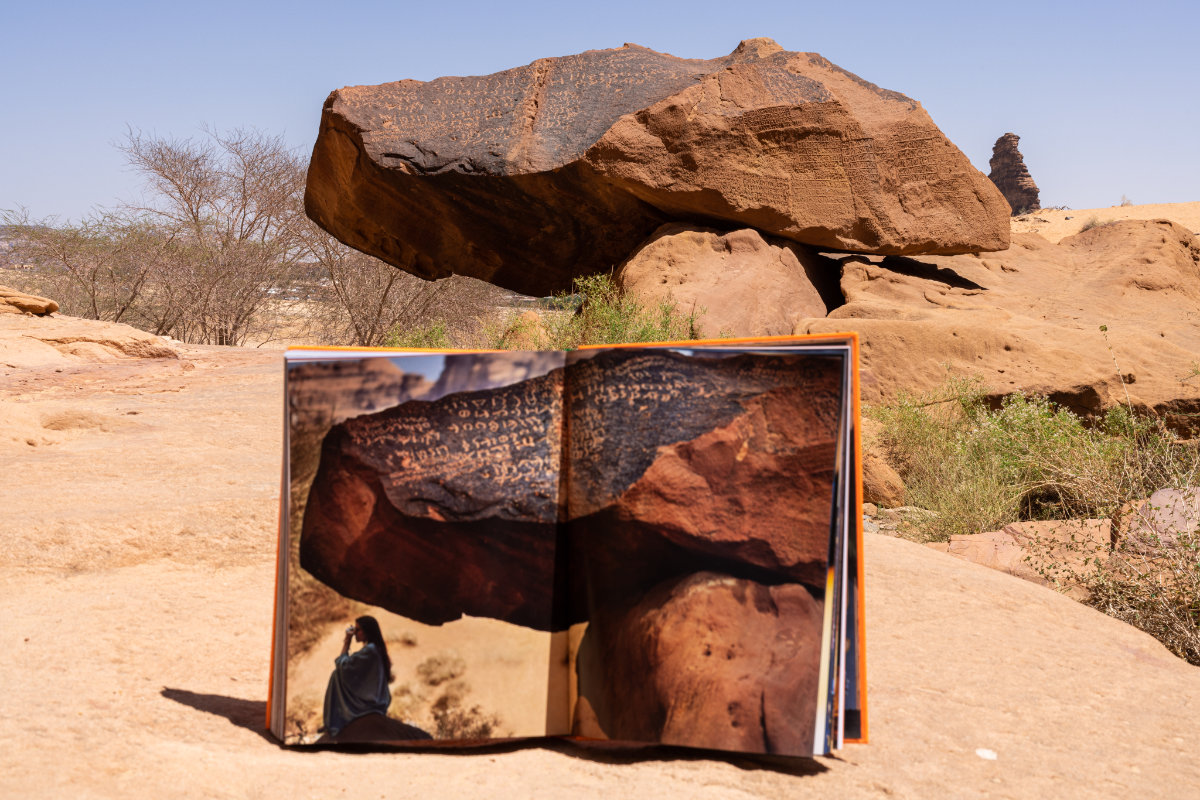
A page of the book containing a picture of ancient rock inscriptions in Jabal Ikmah is displayed in the mountain, located 5 km north of AlUla. (Supplied)
Jabal Ikmah is a mountain 5 km north of AlUla, where ancient travelers left thousands of inscriptions carved into the rocks, dating back to the first millennium B.C. and written in several languages that predate modern Arabic.
“All those inscriptions in many languages, left on the mountain by caravanners 3,000 years ago, form a great poetry,” Garcin said.
At the heart of the AlUla valley is Hegra, an ancient city carved from the spectacular rocky terrain of the Hejaz by the Nabataeans, a people whose empire of trade dominated northwestern Saudi Arabia and beyond more than 2,000 years ago.
In 2008, Hegra, the southern capital of the people who built Petra in modern-day Jordan, became the first place in Saudi Arabia to be inscribed on UNESCO’s World Heritage list, as a site of outstanding universal value.
FASTFACTS
“AlUla Ever” released by New York-based luxury travel and culture publishing house Assouline.
288-page hardback features more than 200 images, many taken by renowned photographers.
The honor came after decades of archaeological work that unearthed many of the secrets of the ancient city and its collection of 111 tombs, cut out of the sandstone rocks, many of which feature decorated facades and intricately carved inscriptions.
As well as bearing mute testimony to the Nabataean civilization, which thrived between the second and third centuries B.C. and the first century, in the words of the UNESCO nomination Hegra bears “outstanding witness to important cultural exchanges in architecture, decoration, language use and the caravan trade.”
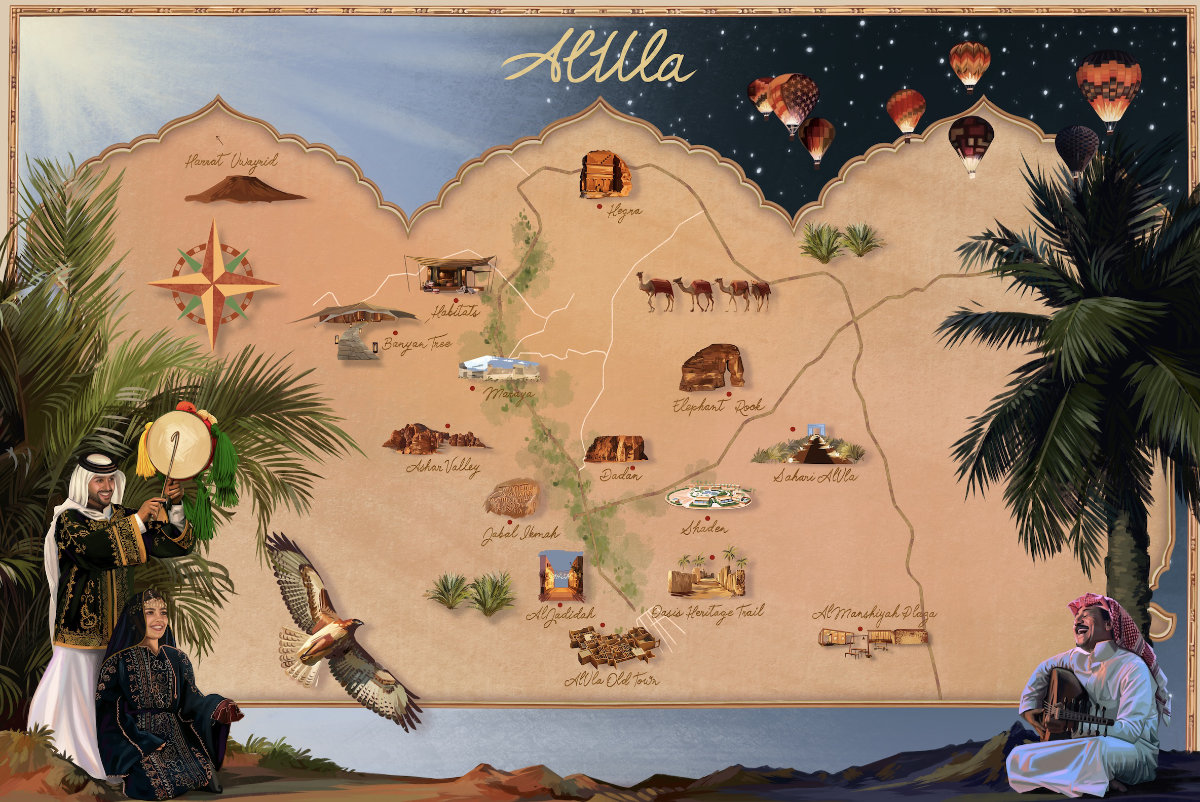
An illustration in the book, AlUla Ever, which features eaturing more than 200 images, many taken by internationally renowned photographers. (Supplied)
Although the Nabataean city was abandoned during the pre-Islamic period, the route through it from north to south continued to be plied by trade caravans and then, following the coming of Islam, by camel trains carrying pilgrims to Makkah.
Before the First World War, AlUla became a stop on the new Hejaz railway, which brought pilgrims — and Ottoman troops — from Damascus to Madinah. The station, which survived a bombing raid by the British air force during the war, is now being transformed into a luxury boutique hotel.
The Chedi Hegra will incorporate several existing structures, including the station, an old Ottoman fort and a number of historic mud-brick walls, which are being preserved and integrated with modern architecture.
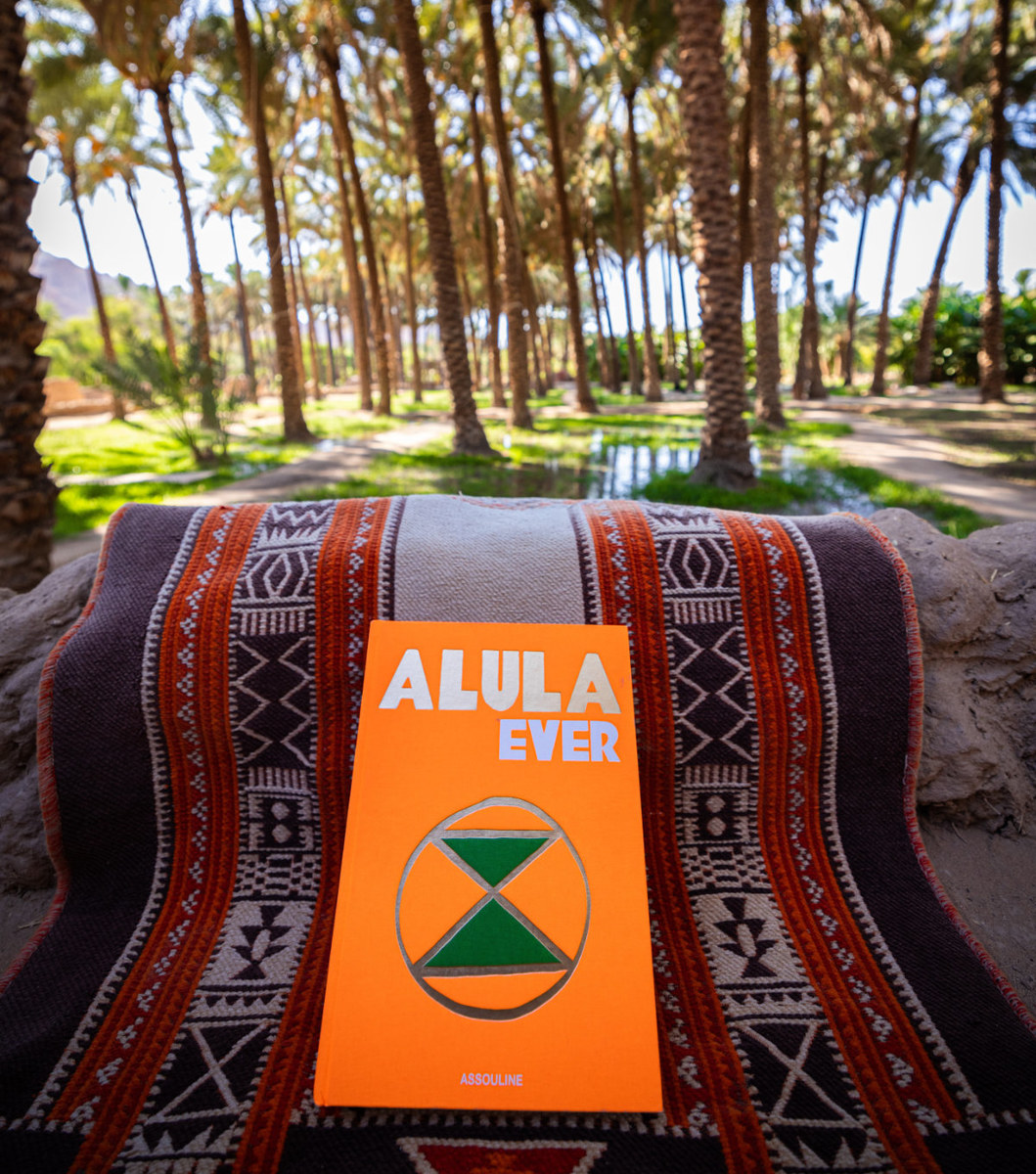
In the oasis of AlUla. (Supplied)
As the UNESCO listing puts it, Hegra was “at a meeting point between various civilizations of late antiquity, on a trade route between the Arabian Peninsula, the Mediterranean world and Asia.”
Today, the beautiful valley is once again a meeting point for international cultures, as the Royal Commission for AlUla pursues its mission to transform it into a “living, open museum,” complete with a unique network of museums, archaeological sites and luxury hotels.
By 2035, AlUla is predicted to attract more than 2 million visitors a year, creating 35,000 jobs for local people and, in the process, raise Saudi Arabia’s profile as a world-leading cultural destination.
“AlUla Ever,” which measures 25×35 cm and features over 200 photographs and illustrations, is published in linen and available from selected stores and through Assouline.com for $105.
